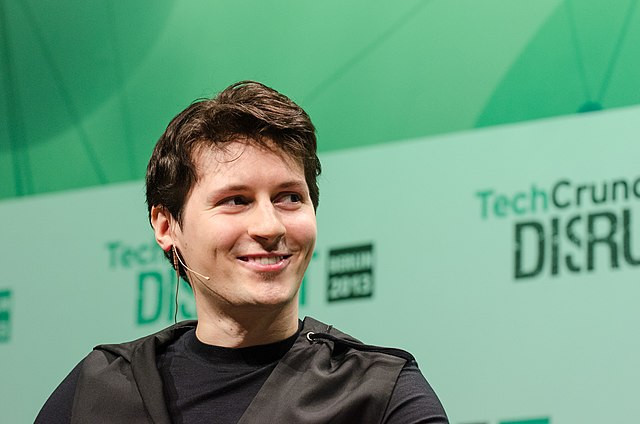Pavel Durov, the enigmatic billionaire founder and CEO of the popular encrypted messaging service Telegram, was arrested at Paris Le Bourget airport on Saturday evening, according to reports from French media outlets TF1 and BFM TV. The Russian-French entrepreneur, who was traveling from Azerbaijan on his private jet, was detained by French authorities as part of an ongoing investigation into allegations that Telegram has been used to facilitate criminal activities.
Durov's arrest marks a significant escalation in the scrutiny of Telegram, a platform that has gained immense popularity for its strong encryption and commitment to privacy. However, these same features have attracted criticism and concern from various governments, including those in Europe and the United States, who allege that the platform has become a haven for illegal activities such as money laundering, drug trafficking, and the dissemination of content linked to the sexual exploitation of minors.
The French authorities' decision to detain Durov stems from an arrest warrant issued as part of a preliminary police investigation. The investigation is reportedly focused on the lack of moderation on Telegram, which officials believe has allowed criminal activities to proliferate unchecked. French prosecutors, adhering to regulations concerning ongoing investigations, have declined to comment on the specifics of the case.
The 39-year-old Durov, who founded Telegram in 2013 with his brother, has long been a controversial figure. His staunch refusal to comply with government demands for access to users' encrypted messages has made him a symbol of resistance against state surveillance but has also drawn ire from authorities worldwide. After leaving Russia in 2014 due to pressure from the government to shut down opposition communities on his previous social media platform VKontakte, Durov has lived in various countries, including Germany, the UK, Singapore, and the United States.
Telegram has become particularly influential in regions such as Russia, Ukraine, and other former Soviet republics, where it is widely used by both government officials and opposition figures. The platform has played a pivotal role in disseminating information-often unfiltered and graphic-about the ongoing conflict between Russia and Ukraine. It is one of the few places where Russians can access independent news, especially after the Kremlin clamped down on media freedom following its invasion of Ukraine in 2022.
Despite its growing user base, which now numbers close to a billion, Telegram's increasing popularity has prompted greater scrutiny. The U.S. Department of State has expressed concern over the "magnitude of dual-use goods exports" from China to Russia facilitated via Telegram, highlighting the platform's role in evading sanctions and supporting Russia's military efforts.
The arrest of Durov has sparked a wave of reactions, particularly from Russian officials and public figures. The Russian Ministry of Foreign Affairs, through spokesperson Maria Zakharova, criticized the arrest as a double standard by Western nations. Zakharova questioned whether the same Western non-governmental organizations (NGOs) that previously condemned Russia's attempts to block Telegram would now demand Durov's release.
Mikhail Ulyanov, Russia's representative to international organizations in Vienna, echoed this sentiment, accusing France of moving towards a more totalitarian society and warning public figures against visiting Western countries. The arrest has also prompted calls for protests at French embassies worldwide, with several Russian bloggers urging demonstrations.
Durov's detention has drawn international attention, with Elon Musk, the billionaire owner of X (formerly Twitter), posting a cryptic remark on social media that alluded to the potential dangers of expressing free speech in Europe. Robert F. Kennedy Jr., who recently endorsed former President Donald Trump after ending his U.S. presidential campaign, also commented on the need to protect free speech, emphasizing the urgency of the issue.






